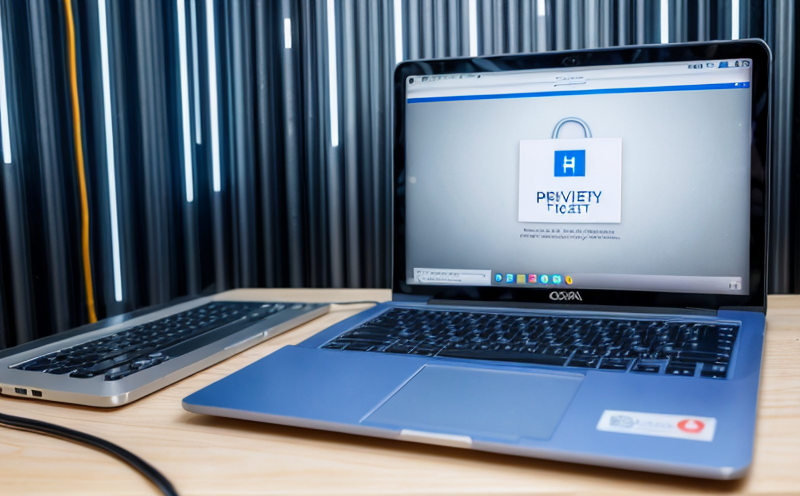ISO 50001 Energy Data Privacy and Protection Testing in Smart Systems
The ISO 50001 standard focuses on energy management systems, promoting the reduction of environmental impacts by optimizing energy use. When applied to smart systems, this framework ensures that energy data is not only managed efficiently but also protected from unauthorized access and potential misuse.
Smart systems in various sectors such as healthcare, finance, and manufacturing collect vast amounts of data, including sensitive information like personal details and financial transactions. Ensuring the privacy and protection of this data is crucial to maintaining trust and compliance with regulations such as the GDPR, CCPA, and industry-specific standards.
The ISO 50001 standard provides a structured approach to manage energy data privacy. This includes identifying, assessing, and controlling risks associated with the handling of sensitive information within smart systems. By adhering to this framework, organizations can ensure that their energy management practices are aligned with broader cybersecurity and compliance requirements.
The testing process involves several key steps:
- Identification and classification of data types
- Risk assessment for each identified data type
- Implementation of appropriate controls based on risk assessments
- Ongoing monitoring and review of privacy measures
The testing environment includes both physical and digital components, such as servers, network devices, and software applications. Specimen preparation involves simulating real-world conditions to ensure that the system can handle various data scenarios without compromising security.
Instrumentation used in this process may include specialized tools for network traffic analysis, intrusion detection systems (IDS), and encryption validation tools. Acceptance criteria are based on compliance with ISO 50001 standards as well as relevant cybersecurity regulations.
The testing report provides a comprehensive overview of the current state of energy data privacy within smart systems. It highlights any vulnerabilities or gaps in existing controls, offering recommendations for improvement. This document is valuable not only for internal use but also for regulatory compliance and third-party audits.
Why It Matters
Data privacy and protection are essential components of ISO 50001 compliance, especially in the context of smart systems. The collection and management of energy data often involve sensitive information that, if mishandled, can lead to significant security breaches or legal ramifications.
Organizations must comply with international standards such as GDPR and CCPA to protect user privacy. Failure to do so can result in hefty fines and damage to the organization's reputation. By implementing ISO 50001 compliant practices, organizations demonstrate their commitment to ethical business operations and responsible data handling.
From an operational perspective, ensuring energy data privacy enhances system reliability and performance. It helps prevent disruptions caused by unauthorized access or manipulation of critical data. Moreover, it fosters a culture of security awareness among employees, which is crucial for long-term sustainability.
The global trend towards digitization has increased the complexity of managing smart systems. Effective data protection strategies are necessary to safeguard against evolving cyber threats. This not only protects sensitive information but also maintains the integrity and availability of energy management processes.
Why Choose This Test
The ISO 50001 Energy Data Privacy and Protection Testing in Smart Systems is a critical service for organizations looking to enhance their cybersecurity posture. It offers several advantages over other testing methods:
- Comprehensive Assessment: The test provides a thorough evaluation of all aspects of energy data privacy, ensuring no stone is left unturned.
- Regulatory Compliance: By adhering to ISO 50001 standards and relevant regulations, organizations can avoid legal issues and maintain compliance with international standards.
- Risk Mitigation: Identifying vulnerabilities early allows for proactive measures to be taken, reducing the risk of data breaches or unauthorized access.
- Enhanced Reputation: Demonstrating commitment to privacy and security improves public trust and strengthens brand reputation.
- Operational Efficiency: Secure systems operate more efficiently, leading to improved resource management and reduced downtime.
The expertise of our team ensures that the testing process is conducted with precision and integrity. Our state-of-the-art facilities and advanced tools provide accurate results, giving clients confidence in their data privacy measures.
Use Cases and Application Examples
The ISO 50001 Energy Data Privacy and Protection Testing is applicable across multiple sectors where smart systems play a significant role. Some examples include:
- Healthcare: Hospitals use smart systems to manage patient records and energy consumption patterns. Ensuring data privacy here is paramount for maintaining patient confidentiality.
- Finance: Financial institutions rely on secure transactions and accurate billing systems, making ISO 5001 compliant testing crucial.
- Manufacturing: Factories utilize smart systems to optimize production processes. The security of energy data is vital for maintaining operational efficiency.
In each case, the test focuses on identifying potential risks and implementing robust controls. For instance, in a manufacturing setting, this might involve testing firewalls, encryption protocols, and access control mechanisms. In healthcare, it could encompass patient record databases and electronic health records (EHR).
The results of these tests are critical for maintaining trust with stakeholders such as patients, customers, and partners. They also provide valuable insights into areas that require improvement, helping organizations to stay ahead in a competitive landscape.





